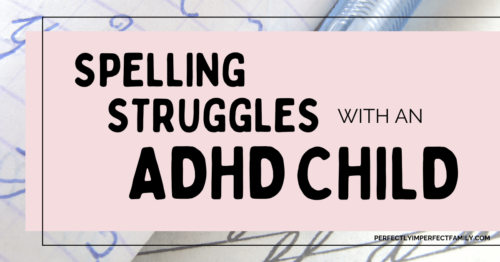5 Ways to Help Your ADHD Child Manage Hyperfixation
Managing hyperfixation in children with ADHD can be challenging, especially when their focus locks onto something they love, like video games. I share five practical strategies I’ve used to help my son navigate hyperfixation. From setting time limits to involving him in rule-making, it’s all about finding what works for your family.
Spelling Struggles With an ADHD Child
I didn’t realize spelling struggles were common for kids with ADHD until my son was older. Looking back, I wish I had known sooner — it would have saved us both frustration. He’s still a great student despite the challenge. If your child struggles with spelling, be patient. They’ll be just fine! What strategies have worked for you?
3 Summer Rules for Our Summer Vacation – Lessons Learned
Our summer was a whirlwind of travel, fun, and, honestly, a bit of chaos. Our well-intended summer rules quickly fell apart, but that’s okay — we still had a great time! Failure isn’t the end; it’s a chance to adjust for next year. How did your summer go? Did your plans work out? Let’s share!
3 Summer Rules for Our Summer Vacation
To keep summer from turning into a lazy free-for-all, I’ve set up simple rules and chores for my kids. They must get ready, complete daily tasks, and help around the house before enjoying free time. It’s not always perfect, but structure helps! Do you have summer rules for your kids?
Our Son’s Challenges With Hyperfixation
Hyperfixation, common in those with ADHD, is an intense, prolonged focus on a specific activity or interest. While it can lead to amazing productivity and energy, it also causes challenges like ignoring personal needs, not listening, or delaying tasks. For our son, video games are a common area of hyperfixation, affecting his focus on daily responsibilities.
My Son Has Inattentive ADHD
My son has Inattentive ADHD, a less obvious subtype that often goes unnoticed because it lacks hyperactivity. Our journey began when teachers noticed his struggles with following directions. Through diagnosis, medication, and daily challenges, we've learned so much. I’m sharing our experiences to help others navigating ADHD — because no one should feel alone in this journey.






